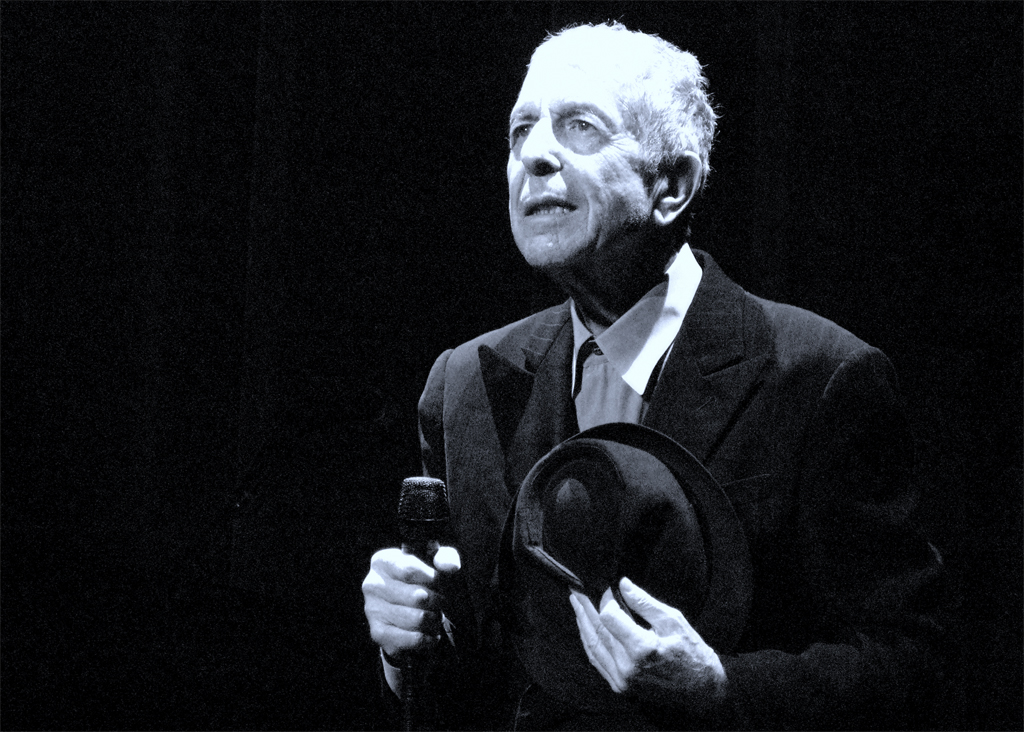 On Monday 7 November, one of music’s most eloquent and able songwriters passed away. Leonard Cohen was 82 when he died peacefully at his home in southern California earlier this week. His son Adam said touchingly in an interview with Rolling Stone, “My father passed away peacefully at his home in Los Angeles with the knowledge that he had completed what he felt was one of his greatest records. He was writing up until his last moments with his unique brand of humour."
On Monday 7 November, one of music’s most eloquent and able songwriters passed away. Leonard Cohen was 82 when he died peacefully at his home in southern California earlier this week. His son Adam said touchingly in an interview with Rolling Stone, “My father passed away peacefully at his home in Los Angeles with the knowledge that he had completed what he felt was one of his greatest records. He was writing up until his last moments with his unique brand of humour."
The record Adam is speaking about is You Want it Darker, which was recently released (21 Oct) and effused the sincere, gravelly tones and orchestral movements he was so well known for.
Born in Westmount, Quebec on 21 September 1934, Cohen grew up in a middle-class Jewish family. Marsha Klonitsky, his mother, was the daughter of a rabbi, while his father, Nathan Cohen, had Polish heritage – his father Lyon Cohen having emigrated from Poland in 1871 and later founding the Canadian Jewish Congress.
While at high school Cohen picked up an appreciation of poetry and by age 20 had published his first poems in a magazine called CIV/n. It wasn’t until the 60s, however, that Cohen began life as a musician. In 1967 he moved to New York, befriended Andy Warhol and penned the song Suzanne, which was to be his first successful foray into the world of music.
Despite a prolific, 60-year career, Cohen never charted highly in the mainstream. His highest ranking song in Canada, Closing Time, reached Number Five, while in the UK it was only the reissue of Hallelujah that ever charted at position 36.
Originally released in 1984, Hallelujah has become the song Cohen is most renowned for. The singer never had much success with it himself, but it was remarkably covered over 300 times, most notably by the late US singer Jeff Buckley, who scored a Number One hit with it.
As well as music, Cohen was also known as an accomplished author. Over the years he published two novels – The Favourite Game (1963) and Beautiful Losers (1966) – and 13 anthologies of poetry.
Eleven albums down the line, in 2005, Cohen was in the public eye for something other than his art after his close friend and manager Kelly Lynch was exposed for misappropriating over $5m from Cohen’s accounts. This hefty loss formed a big part of Cohen’s reasons for writing new music and touring again.
Earlier this year Cohen’s former lover Marianne Ihlen died. She was the Marianne of the song So Long, Marianne, which Cohen wrote about her when the pair dated and lived in Hydra, Greece for much of the 60s. Shortly before Marianne passed Cohen penned her a heartfelt letter saying: “Marianne it’s come to this time when we are really so old and our bodies are falling apart and I think I will follow you very soon. Know that I am so close behind you that if you stretch out your hand, I think you can reach mine.”
The world has lost a truly talented spirit that will live on in Leonard Cohen’s songs, poetry and legacy.
By Danielle Goldstein
